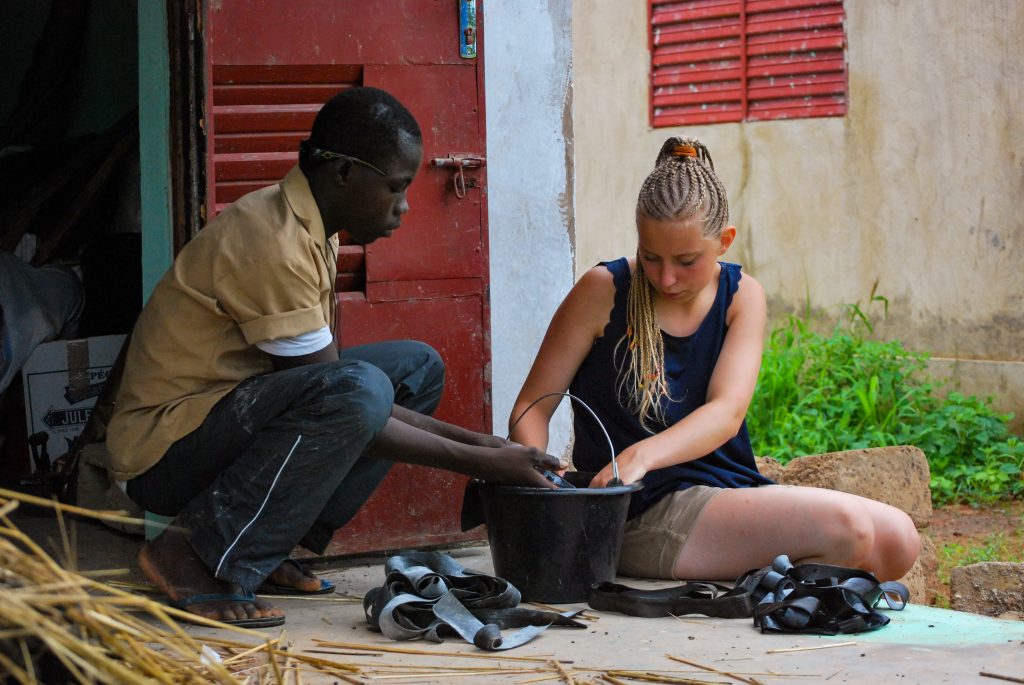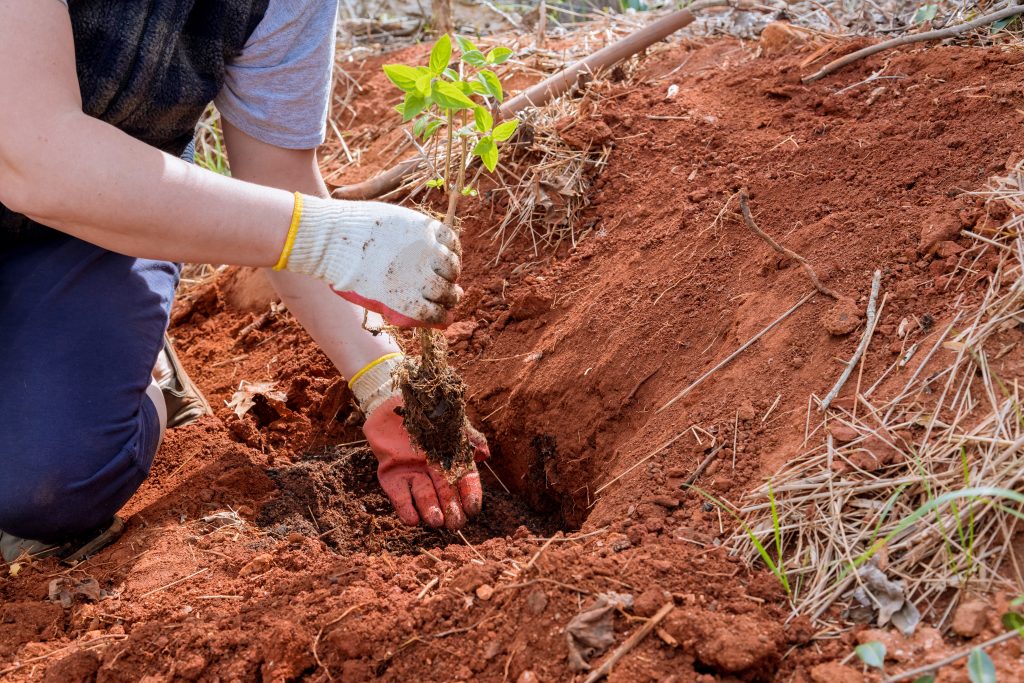Sustainable tourism in Uganda prioritises environmental conservation, cultural preservation, and the well-being of local communities. This model has become increasingly significant as Uganda and other tourist-bound countries seek to balance the benefits of a growing tourism sector with safeguarding their rich natural and cultural assets.
Sustainable tourism involves actively minimising ecological footprints, respecting cultural integrity, and fostering positive economic and social impacts on the communities involved. Visitors who engage in sustainable tourism contribute to these objectives, ensuring that their presence supports rather than detracts from the long-term vitality of Uganda’s environment and its people.
Our Commitment to Responsible Travel
Entuuha Safaris exemplifies a forward-thinking approach to tourism. We embed sustainability and community engagement principles into all our operations. Our philosophy centres on creating meaningful experiences for visitors while ensuring that tourism benefits the local population and the environment.
We integrate responsible practices into every aspect of our services through deliberate planning and partnerships. From selecting accommodations that adhere to eco-friendly standards to organising activities that support conservation efforts, our approach reflects a deep understanding of the interconnectedness between tourism and sustainability. Focusing on education and cultural exchange also encourages visitors to appreciate Uganda’s unique way of life better.
Furthermore, we are deeply committed to initiating and catalysing positive social change through our community-driven programs. These initiatives are evident in our operations, ensuring that each tour contributes to a broader vision of sustainable development in Uganda.
Impact on Local Communities and Conservation Efforts
Our approach to sustainable tourism in Uganda also benefits the communities we work with and the natural environment we aim to protect. We actively promote environmental stewardship and contribute to local populations’ social and economic upliftment through initiatives like the Behavioral Change Program and other community-focused efforts.
Our programs provide tangible benefits for local communities, such as increased income, educational opportunities, and women and youth empowerment. By involving residents in tourism activities—whether as guides, artisans, or hosts—we ensure that they are both passive beneficiaries and active participants in shaping their futures. This collaborative approach strengthens the fabric of the community and fosters a sense of ownership and pride in cultural preservation.
On the conservation front, our efforts are directed toward raising awareness and funding for critical environmental initiatives. We recognise that Uganda’s natural resources are invaluable, a draw for visitors, and the lifeblood of local communities. Our programs aim to reduce tourism’s environmental impact while supporting projects that restore and protect Uganda’s ecosystems.
Personal Growth and Development Through Sustainable Tourism
Sustainable tourism in Uganda and surrounding areas allows visitors to explore and grow through meaningful engagement with Uganda’s people and culture. At Entuuha Safaris, a well-rounded travel experience can inspire a profound sense of responsibility and awareness, especially when visitors actively participate in programs designed to bridge cultures and share knowledge.
Our initiatives, such as the Behavioral Change Program, are particularly impactful. Young participants leave with more than memories, and they develop essential life skills, an appreciation for diversity, and a broadened world perspective. Activities like farming, cooking, and engaging in daily tasks in rural Uganda provide them with hands-on learning experiences that foster resilience, teamwork, and adaptability.
This journey of personal development extends to adults as well. Visitors often reassess their consumption habits, values, and connection to the environment through interactions with local communities and participation in sustainable practices. This transformation is a cornerstone of our goal and a meaningful exchange in which visitors grow as individuals while contributing to a shared sustainability vision.

How Tourists Can Support Sustainable Tourism in Uganda
Supporting sustainable tourism in Uganda begins with thoughtful decision-making and a commitment to practices that foster environmental preservation, cultural respect, and community development. At Entuuha Safaris, we believe every choice visitors make can contribute to their explored regions’ long-term health and prosperity.
Partner with Ethical Tour Operators
It is foundational to choose a tour operator that prioritises sustainability. Entuuha Safaris integrates environmentally responsible practices into its operations and invests directly in community-driven initiatives. By selecting operators with similar values, visitors can ensure their presence contributes to conservation efforts and the empowerment of local communities.
Engage in Programs That Create Lasting Impact
Participating in initiatives like our Behavioral Change Program allows visitors to support community development directly. These programs are carefully designed to foster mutual learning, cultural exchange, and economic opportunities for local families. By engaging in such experiences, tourists actively contribute to the sustainable development of the areas they visit.
Support Local Economies
Purchasing locally produced goods and services is a meaningful way to ensure that tourism’s economic benefits remain within the community. Whether buying handcrafted items from artisans, dining at locally owned restaurants, or hiring local guides, these actions strengthen community resilience and create pathways for sustainable growth.
Practice Environmental Stewardship
Sustainable tourism in Uganda requires a commitment to minimising environmental impact. Visitors can take simple yet effective measures, such as reducing their reliance on single-use plastics, opting for reusable water bottles, and adhering to designated trails during wildlife visits. Additionally, respecting wildlife habitats by maintaining safe distances and avoiding disruptive behaviours helps preserve Uganda’s unique ecosystems for future generations.

Foster Cultural Respect
Understanding and respecting local traditions and practices in Uganda is a cornerstone of sustainable tourism. Visitors should take time to learn about the communities they visit, ask questions with an open mind, and engage in cultural activities with sensitivity and appreciation. Building genuine connections fosters mutual understanding and enriches the travel experience for both visitors and hosts.
Leave a Positive Legacy
Sustainable tourism in Uganda is primarily about the long-term impact left behind. Visitors can leave a positive legacy by donating to or volunteering with credible organisations that support education, healthcare, or environmental conservation in Uganda. Even after their journey concludes, continuing to advocate for and support sustainable initiatives can amplify their contribution.
Tourists can create meaningful, positive change by making conscious decisions and aligning their actions with sustainability principles. At Entuuha Safaris, we are committed to guiding visitors toward experiences that honour Uganda’s rich heritage, protect its natural beauty, and empower its communities. Together, we can ensure that tourism remains a force for good.
The Future of Sustainable Tourism with Entuuha Safaris
At Entuuha Safaris, our vision for the future of sustainable tourism in Uganda is grounded in a steadfast commitment to sustainability, cultural preservation, and environmental stewardship. Tourism should serve as a bridge, connecting visitors to Uganda’s rich history and natural beauty while empowering local communities and safeguarding the environment for future generations.
A Holistic Approach to Sustainable Tourism in Uganda
Our dedication to sustainable tourism goes beyond rhetoric; it is embedded in every aspect of our work. From offering engaging programs such as the Behavioral Change Program to collaborating with local communities, our approach is comprehensive and purpose-driven. We are committed to ensuring that every interaction leaves a positive and lasting impact, whether through economic opportunities for local artisans, educational exchanges, or the preservation of fragile ecosystems.
Building a Network of Shared Responsibility
The future of sustainable tourism in Uganda requires collective action. Individual operators cannot act alone. Visitors, communities, policymakers, and industry stakeholders must come together to ensure tourism contributes to Uganda’s broader development goals. At Entuuha Safaris, we see ourselves as facilitators of this shared responsibility, helping to align our visitors’ aspirations with the needs of the communities and environments they encounter.
Empowering Local Communities as Stakeholders
Central to our philosophy is the belief that local communities are not mere participants in the tourism industry—they are key stakeholders. By involving them in decision-making and offering economic and social advancement opportunities, we help create a tourism model that equitably distributes benefits. This empowerment is critical to the long-term success of sustainable tourism in Uganda, as it fosters ownership, pride, and resilience within the communities that make Uganda a unique destination.
Adapting to a Changing World
As global awareness of sustainable practices grows, visitors’ expectations and host communities’ needs evolve. We are committed to staying ahead of these changes by constantly innovating and adapting our programs and practices. Whether through integrating renewable energy solutions into our operations, enhancing conservation efforts, or expanding our community outreach initiatives, we are prepared to meet the challenges of tomorrow with a forward-thinking approach.
An Invitation to Join Our Mission
The future of sustainable tourism in Uganda depends on the choices we make today. At Entuuha Safaris, we proudly lead by example, showing how tourism can be a force for good. We invite visitors to travel with intention, partners to collaborate with purpose, and communities to join us in shaping a sustainable future. Together, we can redefine tourism as a tool for positive transformation—one that balances the joys of exploration with the responsibility to protect and nurture.
As we look ahead, our commitment remains clear: to create a tourism model that respects Uganda’s cultural and environmental treasures uplifts its communities, and leaves a legacy of sustainability and growth. This is not just our vision but a promise to the future.
